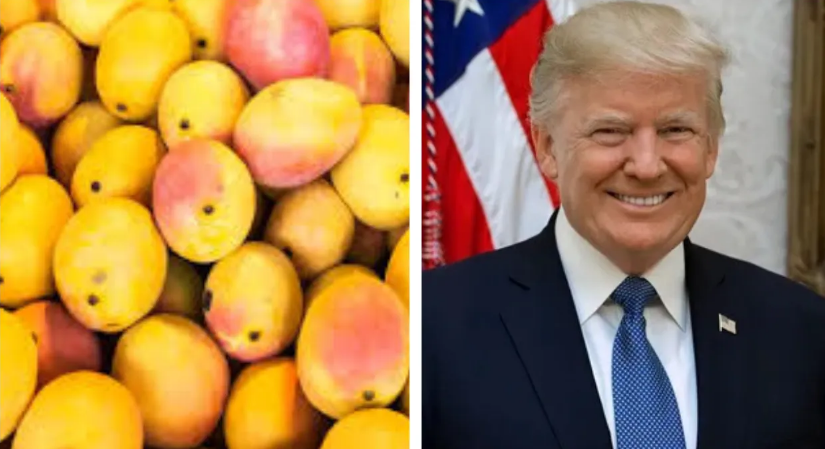U.S. President Donald Trump is facing renewed scrutiny amid allegations that, despite projecting a friendly stance toward India, his administration adopted policies detrimental to Indian interests. Recent incidents involving the rejection of Indian mango shipments at multiple U.S. airports have intensified concerns over trade relations between the two countries.
Approximately 15 containers of Indian mangoes, primarily sourced from regions around Mumbai, were turned away at key U.S. airports including Los Angeles, San Francisco, and Atlanta. The rejections were reportedly due to improper documentation and procedural lapses related to the mandatory irradiation process required by the U.S. Department of Agriculture (USDA). This process is essential to eliminate microbes and maintain fruit quality and shelf life.
ALSO READ: Terror Plot Foiled in Telugu States; Two Arrested with Explosives
Exporters revealed that despite adhering to USDA-approved irradiation protocols and receiving certifications, the shipments were denied entry, resulting in estimated losses of around Rs. 4 crore. The mango consignments could neither be returned to India nor safely sold in the U.S. market, forcing exporters to discard the produce.
Industry representatives criticized the lack of coordination, highlighting that shipments were sometimes cleared for loading at Mumbai airport without final clearance, only to be rejected upon arrival in the U.S. Exporters suspect these actions have caused unwarranted damage to Indian farmers and exporters, exacerbating financial hardships.
This development comes amid broader concerns about the dynamics of India-U.S. trade relations during and following the Trump administration, prompting calls for improved communication and cooperation to safeguard bilateral trade interests.






